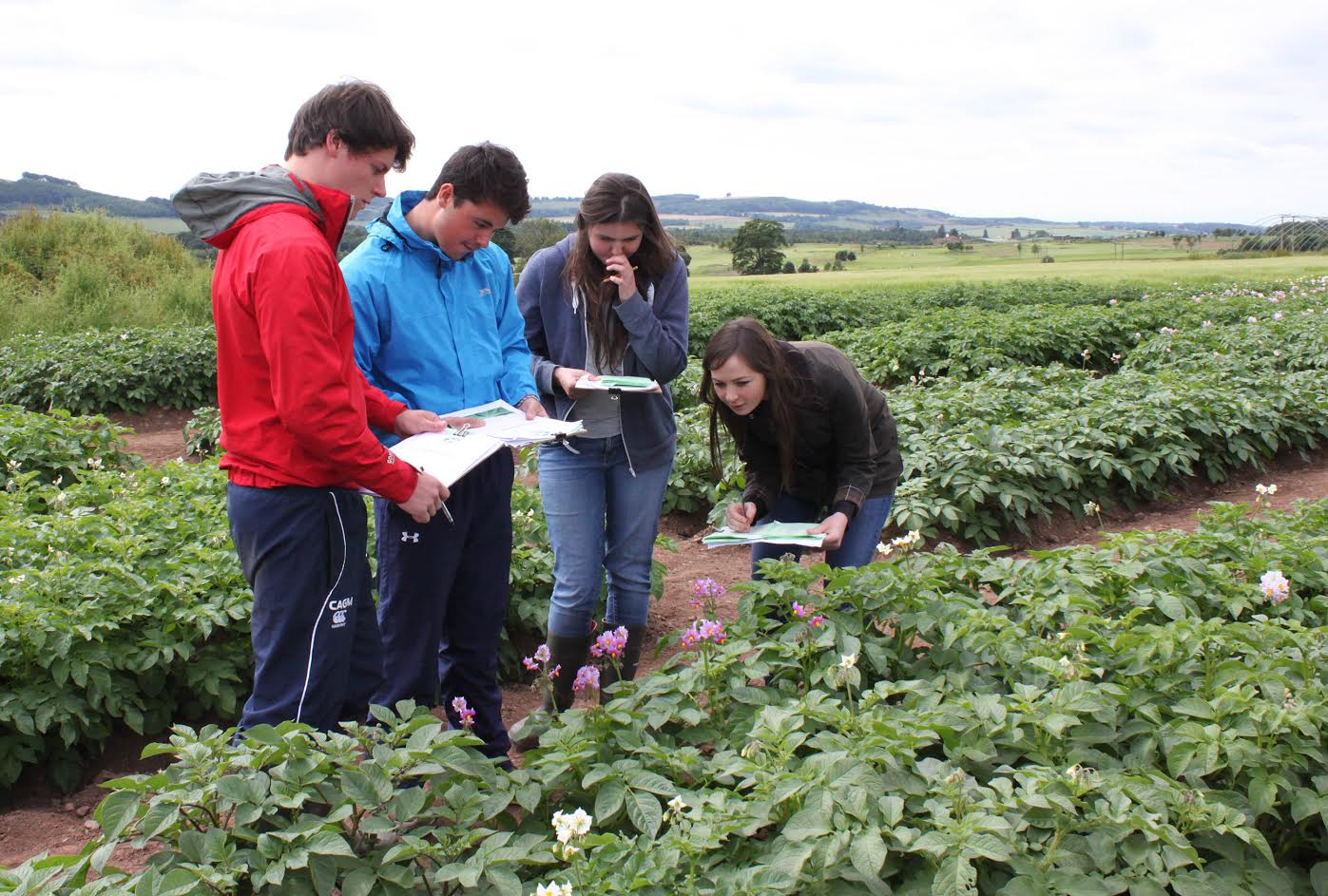
The health and reputation of a Scottish industry worth around £100 million a year depends on the work of “tattie roguers” - and it needs more of the potato disease police.
Scotland’s Rural College Campus in Aberdeen is looking for any "rogues" to complete a five day course in June and successfully identify potatoes with disease.
The agricultural college is looking for people with the skills, senses and stamina to identify plants with diseases and root out the threats.
The crops, grown in fields on the east side of the country, gain their mostly disease-free reputation because of Scotland's cooler summers and colder winters mean there are far fewer aphids that carry viral diseases.
Seed potatoes are the smaller tubers other growers plant to grow the “ware” crops the public buy to eat.
Scotland produces 80% of the seed potatoes in the UK with over 200 growers producing 230,000 tonnes, mainly for worldwide export.
Over 80,000 tonnes go to non EU countries like Egypt while EU customers include the UK, the Canaries, Cyprus and Spain.
'Potato disease police'
In June this year, Scotland’s Rural College (SRUC) will be training the next batch of the potato disease police. The course at the Aberdeen Campus is scheduled to run from 19 – 23 June.
Innes Jessiman, Potato Consultant with SAC Consulting (part of SRUC), said: “Once the tattie roguers have learned to identify different varieties, spot signs of key diseases or pests, and have received their certificate, they are a key component in the protection of this financially vital crop.
“It is a skilled job with real responsibility - but one that is ideal for somebody keen on spending the summer out of doors instead of an office.
“Small teams walk the growing crops, removing any diseased plants to reduce spread. Once qualified, roguers can earn £10 - £15 an hour, depending on experience. That can equate to over £3,500 pounds in a season and with annual refresher courses it is a summer job that can last for years.”
